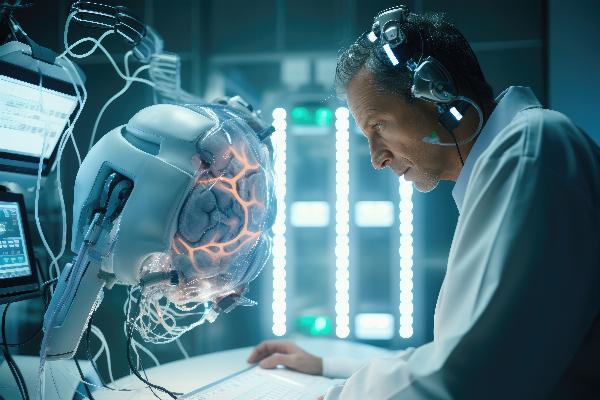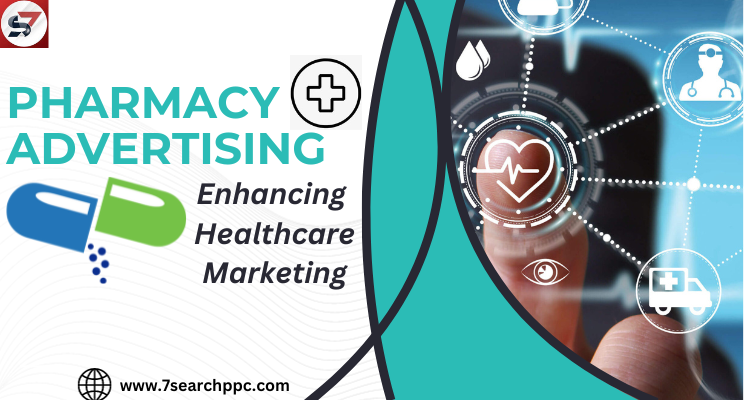 Topic Cluster Planning – Boost Topical Authority Like a Pro!
Topic Cluster Planning – Boost Topical Authority Like a Pro!
Bridging the Gap: How AI is Transforming Healthcare for Both Patients and Professionals
Written by Larisa Albanians » Updated on: June 17th, 2025

Artificial Intelligence (AI) is increasingly becoming a cornerstone in healthcare, revolutionizing the way we approach patient care and professional practice. This transformative technology is not just enhancing clinical outcomes but also bridging the gap between patients and healthcare providers. Here’s an in-depth look at how AI is reshaping the healthcare landscape for both patients and professionals.
AI Empowering Patients
1. Enhanced Diagnostic Accuracy
One of the most significant ways AI is transforming patient care is through improved diagnostic accuracy. AI algorithms, trained on vast datasets, can analyze medical images and detect anomalies with remarkable precision. For instance, AI systems can identify signs of diseases like cancer or diabetic retinopathy at an early stage, often with greater accuracy than human doctors.
Patients benefit from early and accurate diagnoses, which can lead to more effective treatment plans and better outcomes. This technology not only saves lives but also reduces the anxiety and uncertainty that often accompany diagnostic processes.
2. Personalized Treatment Plans
AI's ability to analyze large datasets extends to developing personalized treatment plans. By examining a patient's medical history, genetic information, and lifestyle factors, AI can suggest tailored treatment options that are more likely to be effective. This personalized approach can improve the efficacy of treatments and minimize adverse effects.
For example, AI-driven tools can recommend the most suitable chemotherapy regimen for cancer patients based on their unique genetic makeup, potentially increasing the treatment's success rate.
3. Empowering Self-Care and Monitoring
Wearable devices and mobile health applications powered by AI are empowering patients to take charge of their health. These tools can monitor vital signs, track physical activity, and provide real-time feedback. For instance, AI-powered apps can detect irregular heartbeats and alert users to seek medical attention before a potential issue becomes critical.
By facilitating proactive health management, AI helps patients maintain better health and avoid hospital visits, leading to a higher quality of life and reduced healthcare costs.
4. Improved Access to Healthcare
Telemedicine, driven by AI, is breaking down geographical barriers and making healthcare accessible to remote and underserved populations. AI can triage patients, prioritize cases based on severity, and even provide preliminary diagnoses through chatbots and virtual assistants. This ensures that patients receive timely medical advice and reduces the burden on healthcare facilities.
For individuals in rural areas or those with mobility issues, AI-powered telemedicine can be a lifeline, providing them with the healthcare access they need without the need for travel.
AI Empowering Healthcare Professionals
1. Streamlined Administrative Tasks
Healthcare professionals often spend a significant portion of their time on administrative tasks, such as documentation and billing. AI can automate many of these tasks, freeing up valuable time for doctors and nurses to focus on patient care. For example, AI-powered speech recognition tools can transcribe patient notes during consultations, reducing the administrative burden on healthcare providers.
This not only enhances efficiency but also reduces burnout among healthcare professionals, allowing them to provide better care to their patients.
2. Enhanced Clinical Decision Support
AI systems can assist healthcare professionals in making more informed clinical decisions. By analyzing patient data and providing evidence-based recommendations, AI can support doctors in diagnosing conditions and selecting appropriate treatments. For instance, AI can alert doctors to potential drug interactions or suggest alternative therapies based on the latest medical research.
This support can improve patient outcomes and ensure that treatment decisions are backed by the most current and relevant data.
3. Predictive Analytics for Better Resource Management
AI's predictive analytics capabilities can help healthcare facilities manage their resources more effectively. By forecasting patient admissions, bed occupancy rates, and staffing needs, AI can optimize hospital operations and reduce costs. This ensures that healthcare facilities are better prepared to handle patient loads, particularly during peak times or public health crises.
Improved resource management leads to a more efficient healthcare system, benefiting both patients and healthcare providers.
4. Facilitating Medical Research
AI is accelerating medical research by analyzing vast amounts of data quickly and accurately. Researchers can use AI to identify patterns, predict outcomes, and develop new treatments. For example, AI can help in the discovery of new drugs by simulating their effects on virtual models of human cells.
This rapid analysis can lead to faster breakthroughs and innovations in medicine, ultimately improving patient care and treatment options.
Bridging the Gap: The Synergy of AI in Healthcare
The true power of AI in healthcare lies in its ability to create synergy between patients and healthcare professionals. Here’s how this technology bridges the gap and fosters collaboration:
1. Enhanced Communication
AI-powered platforms facilitate better communication between patients and healthcare providers. Virtual health assistants can answer patient queries, schedule appointments, and provide follow-up care instructions. This continuous engagement ensures that patients feel supported throughout their healthcare journey.
For healthcare professionals, these platforms provide a seamless way to monitor patient progress and intervene when necessary, ensuring continuity of care.
2. Shared Decision-Making
AI empowers patients with information, enabling them to participate actively in their healthcare decisions. When patients understand their conditions and treatment options, they can collaborate more effectively with their healthcare providers. This shared decision-making process leads to more personalized and satisfactory care outcomes.
For healthcare providers, having well-informed patients can facilitate more meaningful consultations and improve adherence to treatment plans.
3. Building Trust
Transparency is key to building trust in AI-powered healthcare. By developing explainable AI systems that clearly communicate how decisions are made, healthcare providers can foster trust with their patients. When patients understand that AI is being used to enhance their care, they are more likely to embrace and benefit from the technology.
For healthcare professionals, transparent AI systems provide assurance that the recommendations are based on sound evidence and thorough analysis, enhancing their confidence in using AI tools.
Conclusion
AI is revolutionizing healthcare by enhancing patient care and empowering healthcare professionals. From improving diagnostic accuracy and personalizing treatment plans to streamlining administrative tasks and supporting clinical decisions, AI is bridging the gap between patients and providers. By fostering collaboration, enhancing communication, and building trust, AI is paving the way for a more efficient, effective, and patient-centered healthcare system.
As AI continues to evolve, its potential to transform healthcare will only grow. By embracing this technology and addressing the associated challenges, we can create a future where AI and human intelligence work hand in hand to deliver the best possible healthcare outcomes for all.
Get in touch for Healthcare Software Development
Note: IndiBlogHub features both user-submitted and editorial content. We do not verify third-party contributions. Read our Disclaimer and Privacy Policyfor details.
Copyright © 2019-2025 IndiBlogHub.com. All rights reserved. Hosted on DigitalOcean for fast, reliable performance.













